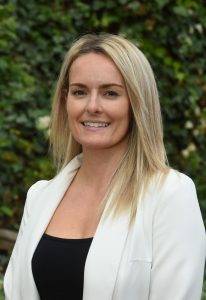There may be certain landmark events (e.g. a divorce, having a child, inheriting money, approaching retirement, winning the lottery, etc.) in your life where it would be advisable to obtain professional financial advice. Alternatively, it could be for more general reasons, such as having a large amount of savings in cash. In such circumstances, a financial adviser can help you make the correct choices but there are some important things to consider when choosing an adviser.
If you are a Trustee you may have a very specific need for financial advice, to ensure the proper duty of care is taken and to meet your legal duties under the Trustee Act 2000.
What does a financial adviser do?
An adviser will take the time to listen and understand your needs, goals, and aspirations. In essence, they consider, where you are now and what you want to achieve, providing advice to help you make better financial decisions and undertake investment decisions on your behalf.
Are financial advisers qualified?
Financial advisers have to be Diploma qualified in Financial Planning, as recognised by the Financial Conduct Authority (FCA) with many advisers deciding to work towards becoming ‘Chartered’.
Also, financial advisers have to be regulated by the FCA, which you can check by searching the FCA register.
Although qualifications can demonstrate a financial adviser’s competence and technical skills, it’s important you feel comfortable with them on a personal level, to ensure you are happy to establish a long term relationship.
Independent or restricted financial advice?
An independent adviser offers advice on financial matters to their clients and recommends suitable financial products from the whole of the market.
A restricted adviser will make a recommendation from a more limited number of products/providers. While the scope of their advice is limited, they are still FCA accredited and must offer objective advice.
Advisers and firms must tell you which type of advice they offer.
Arrange an initial meeting
The majority of advisers will offer a free, no-obligation first meeting, during which they can tell you more about what they do and also allow them to listen and understand your personal circumstances and exactly what you are looking for. As part of this discussion, it is useful to take with you a list of your current income and assets (e.g. cash, investments, pensions).
The adviser will then be able to look at your financial situation and explain how they can help you if you appoint them.
Costs
A financial adviser needs to declare upfront what fee they charge for their services. Knowing the cost upfront should also mean you can compare the price of different financial advisers, before choosing the best one for you and allowing you to make an informed choice.
Choosing a financial adviser – questions to ask:
- Do you give independent or restricted financial advice?
- What fees do I pay now and how much do I pay on an ongoing basis?
- What initial advice and ongoing service do you provide and how is this service delivered?
- How long has your company been in business and how long have you been an adviser?
- If there are certain areas you need special assistance in, like investments, ask them about their experience in this area.
How we can help
Zoe Till is a Partner and Chartered Financial Planner in our expert Investment Management team.
For advice regarding your investments, please get in touch with Zoe or another member of the team in Derby, Leicester or Nottingham on 0800 024 1976 or via our online form.
Contact us



